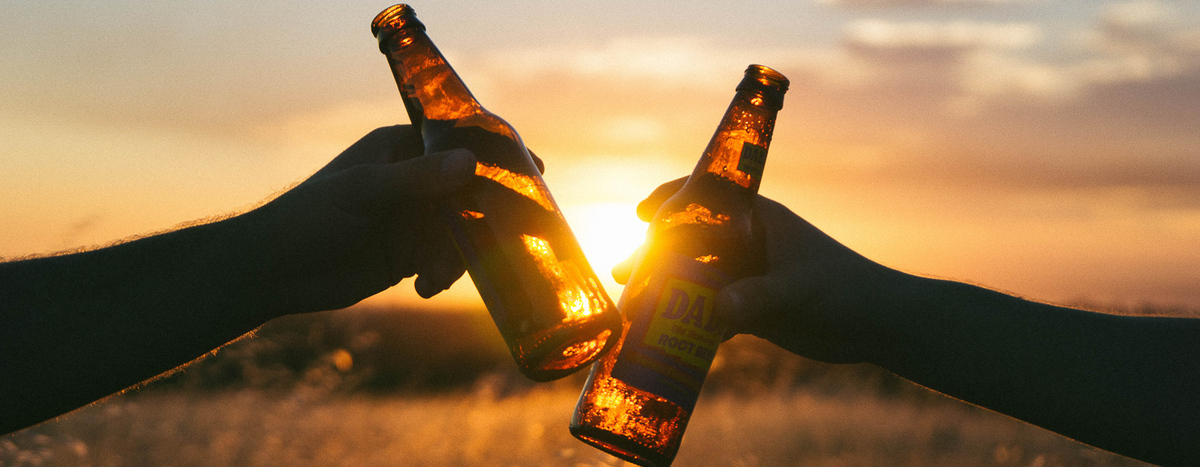Life Insurance
Lump sum payment if you were to pass away or are diagnosed with a terminal illness.
AIA Vitality NZ - 5 min read
01 July 2020
Whatever the name and purpose for your month off alcohol, the health benefits of abstaining remain the same, and make for pretty fascinating reading…

Dry July, Octsober, Febfast: whatever the name and purpose for your month off alcohol, the health benefits of abstaining – even if it’s just for a short time – remain the same.
While alcohol can be enjoyed in moderation, drinking more than two standard drinks per day (the recommended amount, according to health experts) can have negative impacts on your health and wellbeing. And as we try and muddle our way through a pandemic, and all the stress and strain it entails, it’s more important than ever to be conscious of what we’re putting into our bodies.
Following a night of drinking, you’re likely to feel foggy, headachy, thirsty and irritable – a hangover, basically. Heavy drinkers – those who have more drinks, more often – are likely to face ongoing, and serious, health issues: liver damage, heart disease, high blood pressure and cancer.
But what actually happens to our bodies, minds and wallets when we stop drinking for four weeks? Let’s find out.
When you stop drinking, you can start to see positive effects in your body almost immediately. Within 12-24 hours, the detoxification process begins, which means alcohol starts to expel from your system and your blood sugar normalises.
Depending on how much you drink, you may notice withdrawal symptoms within the first day or so off drinking – things like sweating, anxiety, depression and insomnia. Make sure you drink plenty of water, exercise (even a little!), and fill your body with nutritious food while it adjusts.
Speaking of water, within a week you’ll likely start to feel more hydrated. Your skin is likely to clear up (bye bye, breakouts!) and your lips may regain their natural plumpness, and be less prone to cracking.
Weight loss can also occur when you stop drinking. Not only are you cutting out empty calories, but alcohol also prevents your body from effectively burning fat, and can lead to less healthy food choices (experts have reasoned that we crave fatty food after drinking because it provides the most calories for the least effort).
By the end of a month off alcohol, your blood pressure can begin to stabilise, and your cholesterol and liver fat can decrease. Win-win.
While it might feel like you’re on top of the world when you’ve got a drink in your hand, alcohol is a depressant that can have negative side effects on your mental health, and is known to trigger existing signs of anxiety. How many times have you woken up after a night out with workmates, plagued by a sense of dread at what you’re pretty sure you may or may not have said to your boss?
Taking a break from booze can allow your brain to recalibrate, which means you’ll be able to think more clearly, and more rationally. After a week without alcohol, you may even start sleeping better and feeling more alert throughout the day.
After a night out with friends, you’ll notice your wallet/bank balance is much slimmer than it was at the start of the evening. Alcohol is expensive, and those one or two drinks after work with a colleague/Saturday arvo footy sessions at the pub/exclamations of “Let’s have another pint with dinner!” really adds up.
Nationally, New Zealanders spend around $85 million per week on alcohol, or $4-5 billion every single year. Think of all the things you could get for that sort of cash.
Taking a break from alcohol can be tricky, but start with small changes if you don’t feel confident giving up for a month. Aim for at least four alcohol-free days each week, and arrange early morning catch ups with friends, like walks around the park, a swim at the local pool, or a coffee at your favourite café.
If you’re looking to reduce your alcohol intake, make sure you have a glass of water before, between and after drinks – water will flush out your system and make you feel fuller, alternate your wine or beer with an alcohol-free alternative, and consider tracking your alcohol intake with an app, like a BAC Alcohol Calculator.
Disclaimer: This is general information only, without taking into account factors like the objectives, financial situation, needs or personal circumstances of any individual and is not intended to be financial, legal, tax, medical, nutritional, health, fitness or other advice.